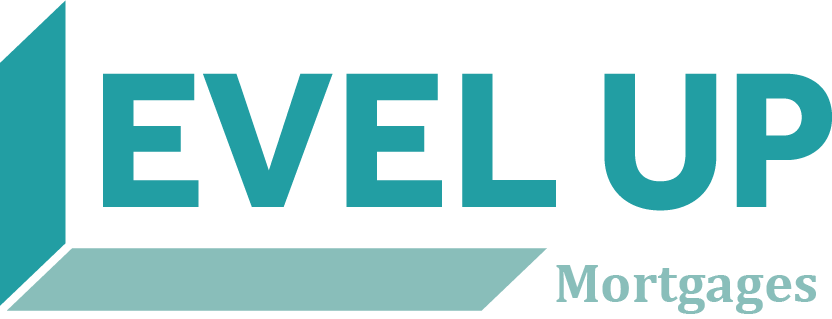Commercial Mortgages in Canada: An Overview for Business Owners and Investors
Commercial Mortgages in Canada: An Overview for Business Owners and Investors
This guide aims to provide a comprehensive overview of commercial mortgages in Canada for business owners and investors.
For business owners and investors seeking to purchase commercial property in Canada, understanding the intricacies of commercial mortgages is essential for successful financing. Compared to residential mortgages, commercial mortgages come with unique requirements, features, and challenges. As such, it is crucial for borrowers to grasp the fundamentals, including eligibility criteria, mortgage structures, interest rate options, and the application process, to make informed financial decisions that align with their business goals and investment strategies.
This guide aims to provide a comprehensive overview of commercial mortgages in Canada for business owners and investors, highlighting essential information and strategies for securing financing in this distinct market segment. By exploring key aspects of commercial mortgages, such as assessing property types and values, evaluating lender requirements, and understanding the role of mortgage brokers, borrowers can confidently navigate the commercial financing landscape and ultimately secure the right mortgage product for their needs.
Understanding Property Types and Values in Commercial Mortgages
When considering commercial mortgages, it's essential to understand the different property types and how they impact mortgage eligibility. Some common commercial property categories include:
Retail Properties: These include shopping centres, stand-alone stores, and mixed-use buildings with retail space.
Office Properties: Ranging from single-tenant buildings to multi-tenant office complexes and professional centres.
Industrial Properties: Warehouses, manufacturing facilities, and distribution centres fall within this category.
Multi-Residential Properties: Apartment buildings with five or more units are considered commercial properties rather than residential.
Property values play a significant role in determining mortgage terms, interest rates, and maximum loan amounts. Lenders will typically require a property appraisal by a certified commercial appraiser to determine the property's market value and identify potential risks and revenue-generating factors.
Assessing Eligibility Criteria and Lender Requirements
Commercial mortgage eligibility criteria often differ from those of residential mortgages. Lenders will evaluate several factors, including:
Property Value and Location: The property's value, market conditions, and location will influence a lender's willingness to finance the purchase.
Income Potential: Lenders will assess the property's ability to generate income, whether through rental income, business operations, or other revenue streams.
Borrower’s Credit Profile: Credit history, credit score, and existing debt obligations will impact a borrower's eligibility for a commercial mortgage.
Business Financials: For established businesses, lenders will consider financial statements, cash flow, and profitability when determining a mortgage application's viability.
Understanding these eligibility criteria and requirements will help borrowers navigate the commercial mortgage landscape more effectively and ultimately secure favourable financing terms.
Exploring Various Commercial Mortgage Structures
Commercial mortgages can be structured in a variety of ways to accommodate borrowers' needs and property types. Some common structures include:
Traditional Mortgages: This structure involves a fixed or variable interest rate, with principal and interest payments made over a specific amortization period. Commercial mortgages often have shorter amortization periods compared to residential mortgages.
Interest-Only Mortgages: In this structure, borrowers only pay interest on the loan for a predetermined period, typically followed by a balloon payment at the end of the term.
Bridge Financing: This short-term financing option provides borrowers with funds to close the gap between purchasing the property and securing long-term financing.
Construction Financing: Developers can use specialized loans for commercial construction projects, with funds released in stages as the project reaches specific milestones.
Business owners and investors should consult with a mortgage broker or lender to determine the most suitable mortgage structure for their specific needs and goals.
Considering the Role of Mortgage Brokers and Alternative Lenders
Working with a mortgage broker can be exceptionally beneficial for borrowers seeking commercial mortgages. Some advantages include:
Access to a Variety of Lenders: Mortgage brokers have established relationships with a diverse range of lenders, including alternative and private lenders, which can expand borrowers' financing options.
Expert Knowledge: A broker's expertise in the commercial mortgage landscape can help borrowers navigate eligibility requirements, secure competitive interest rates, and access industry insights.
Negotiation Support: Brokers can assist with negotiating favourable mortgage terms and conditions on behalf of borrowers, thanks to their extensive market knowledge and negotiation skills.
For borrowers who may not qualify for commercial mortgages through traditional lenders, alternative and private lenders can provide financing options that may be more flexible or tailored to their specific needs.
Navigating the Application and Approval Process
The application process for a commercial mortgage typically involves several steps:
Preparing a Comprehensive Application Package: Borrowers should compile necessary financial documents, including business financial statements, personal credit reports, and property details.
Submitting the Application: Mortgage brokers can assist in submitting the application to appropriate lenders on behalf of the borrower.
Property Appraisal: Lenders will require an appraisal to determine the property's market value and assess potential risks before approval.
Negotiating Terms: Once approved, the negotiation process begins, and mortgage brokers can support borrowers in securing favourable mortgage terms.
THE BOTTOM LINE
By understanding the fundamentals of commercial mortgages in Canada, business owners and investors can seize valuable opportunities to acquire, develop, or refinance commercial properties. With a comprehensive grasp of eligibility criteria, mortgage structures, the roles of mortgage brokers, and the application process, borrowers can make informed decisions that align with their entrepreneurial and investment goals.
Success in securing a commercial mortgage hinges on thorough research, meticulous preparation, and the support of industry professionals. Embrace these insights and confidently navigate the Canadian commercial mortgage landscape, opening doors to business prosperity and investment growth. Contact Level Up Mortgages today!
See What You Qualify For Or Contact Paul To Get Your Pre-Approval.
Paul Davidescu (www.levelupmortgages.com)
Level Up Mortgages
604-809-3188
paul(at)levelupmortgages.com
See Our Google Reviews in BC & Ontario: bit.ly/GoogleReviewLUM ⭐️⭐️⭐️⭐️⭐️

